What are The Best PC Case Brands, and how is that determined to begin with?
Today, I’ll be tackling all you need to know about what makes PC case brands and PC cases “good”, as well as highlighting twelve top manufacturers and what they specifically have to offer.
Let’s not waste any time, and get right into it— with a Table of Contents, should you wish to skip around.
TABLE OF CONTENTS
What Makes a PC Case Brand Good?
Sensibly Built Cases
Obviously, the most important thing to look out for in a good PC Case brand is a sensibly built case! The best PC case manufacturers understand that their cases need to have some kind of balance between form and functionality.
Unfortunately, some manufacturers will still make PC cases that look particularly gaudy or flashy but are lacking in functionality, especially cooling functionality.
While you can’t guarantee every case from a brand is necessarily going to be a hit, it’s important to narrow down the brands that actually know how to make a case versus ones just trying to make a quick buck on the PC market.
As highlighted by GamersNexus above, all the flashy lighting in the world doesn’t matter if your case can’t even cool itself.
Fortunately, established brands are better about abiding to functional case designs than outliers like Abkoncore.
Good Variety or Mastered Form Factor(s)
A standout feature of the best PC case brands will either be a decent variety in case form factor or a high degree of specialization in a particular form factor, like Mini ITX and other SFF PC form factors.
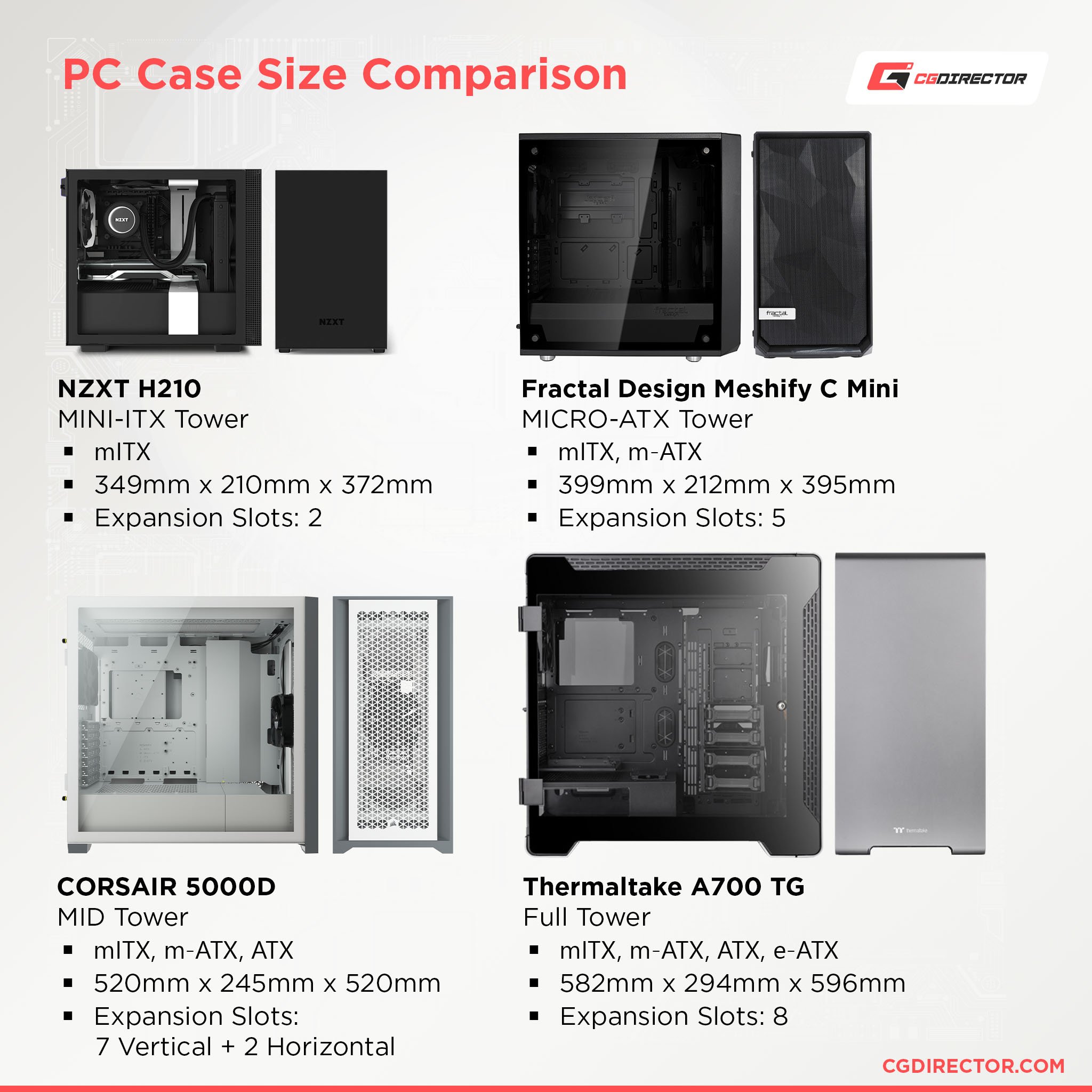
We’ll be covering a variety of brands later on in this article, but it’s important to clarify that some brands will focus on particular niches for their products.
Good Pricing
“Good pricing” is going to be in the eye of the beholder and also vary depending on market conditions, but it’s still a fair metric to look out for when comparing PC case brands!
Many of the bigger-name brands, like Corsair, might be charging a little much if you’re just looking for a high-airflow PC without any extra frills, for example.
However, most PC case brands have good pricing if you’re coming to them for their particular specialties.
While Corsair probably isn’t the best pick for a budget user, a mid-range or high-end RGB lighting fan may want to spend extra for the flashy RGB fans that raise the price of a Corsair case.
What Makes a PC Case Good?
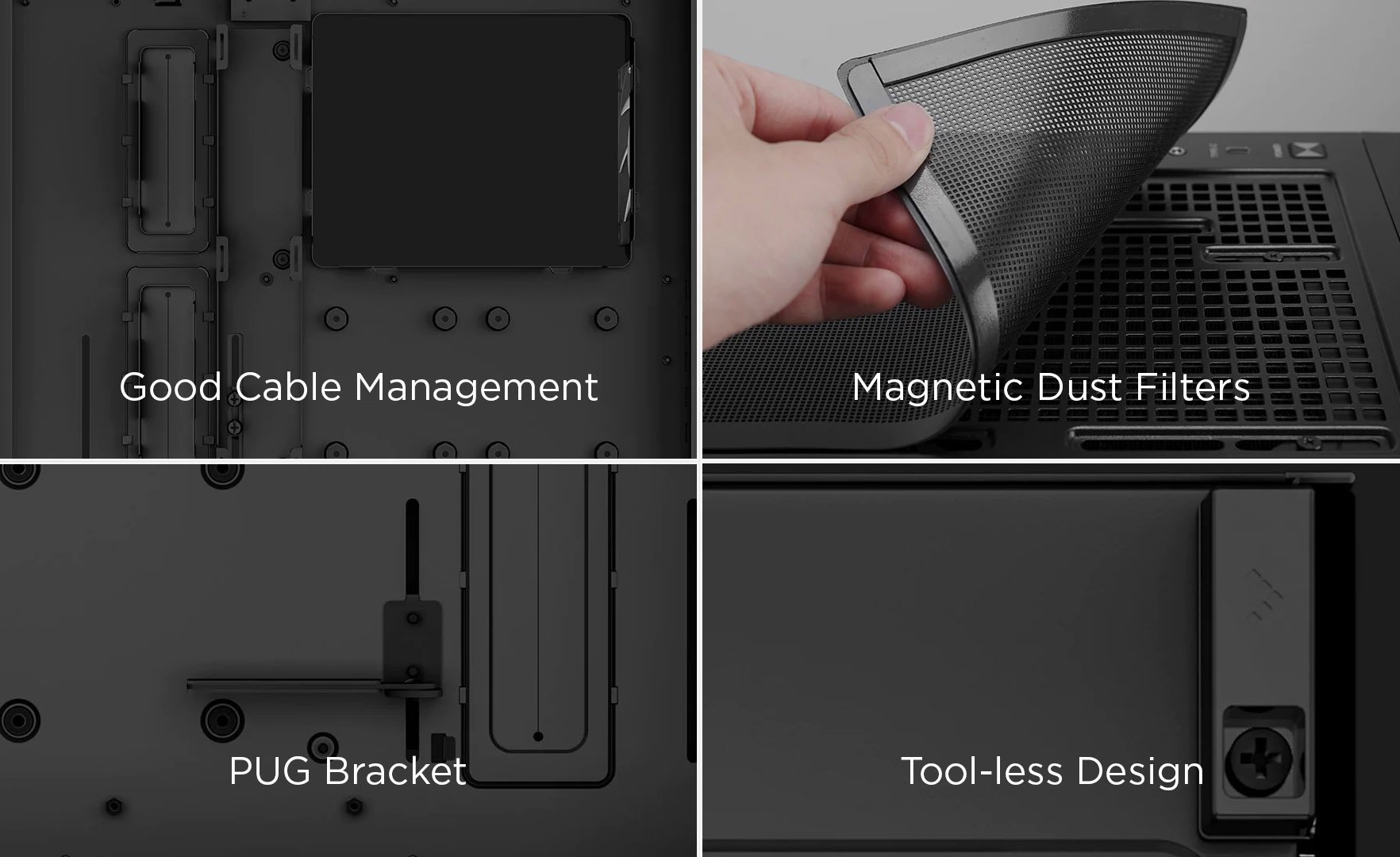
Image Credit: Deepcool
Good Expansion and Cooling Options For Case Size
One thing you’ll want in a good case is good expansion options, at least for the size of your case.
Case size and form factor can vary greatly from case-to-case, even from the same manufacturer, and these directly impact the expansion and cooling options available to you.
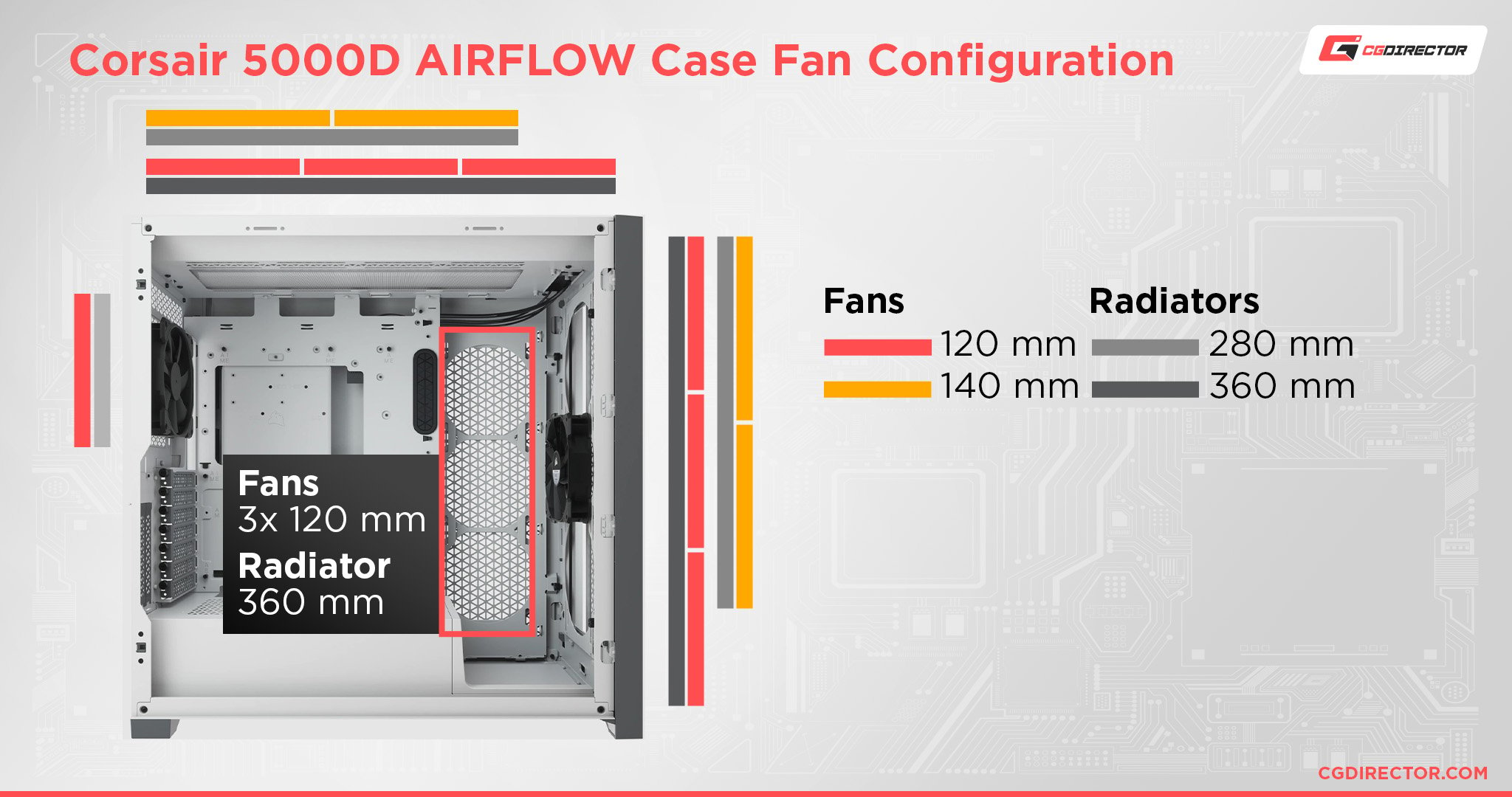
Image Source: Corsair
Fortunately, case form factors also correspond to motherboard types. I’ll list a few prominent motherboard standards below:
- Mini ITX — The smallest mainstream motherboard standard, reducing PCI Express expansion to a single x16 slot and RAM to two slots. Measures 170 x 170 mm.
- Mini DTX — The second-smallest mainstream motherboard standard. Quite similar to Mini ITX, but actually has two x16 slots! The width and RAM restrictions are the same, though. Measures
- Micro ATX — The mainstream standard between Mini ITX and Standard ATX. Micro ATX supports up to four PCIe slots, and can also support four RAM slots! Measures 244 x 244 mm.
- Standard ATX — The de facto standard of modern PC motherboards! ATX supports up to six PCIe slots, and up to eight RAM slots. Measures 305 x 244 mm.
- “Extended” ATX — Starts at 305 x 330 mm, but can actually be inconsistent between manufacturers. It’s important to be mindful of this when shopping for Extended ATX hardware, since the EATX motherboard and case may not necessarily be compatible. I’ve embedded a video from GamersNexus discussing this issue below:
Strong Airflow
One of the most important things in a case is its airflow. Having a path for cool air to go through your case before being exhausted efficiently is integral to keeping your PC running at high loads for extended amounts of time.
So, how do you identify a case with strong airflow? Generally, you’ll be looking for a combination of factors.
The most obvious evidence of a case with airflow is a (properly-made) mesh front panel, which offers the best air intake for cooling your PC in a traditional positive pressure airflow setup. (A positive pressure setup means more intake than exhaust.) This by itself doesn’t necessarily grant good airflow, though.
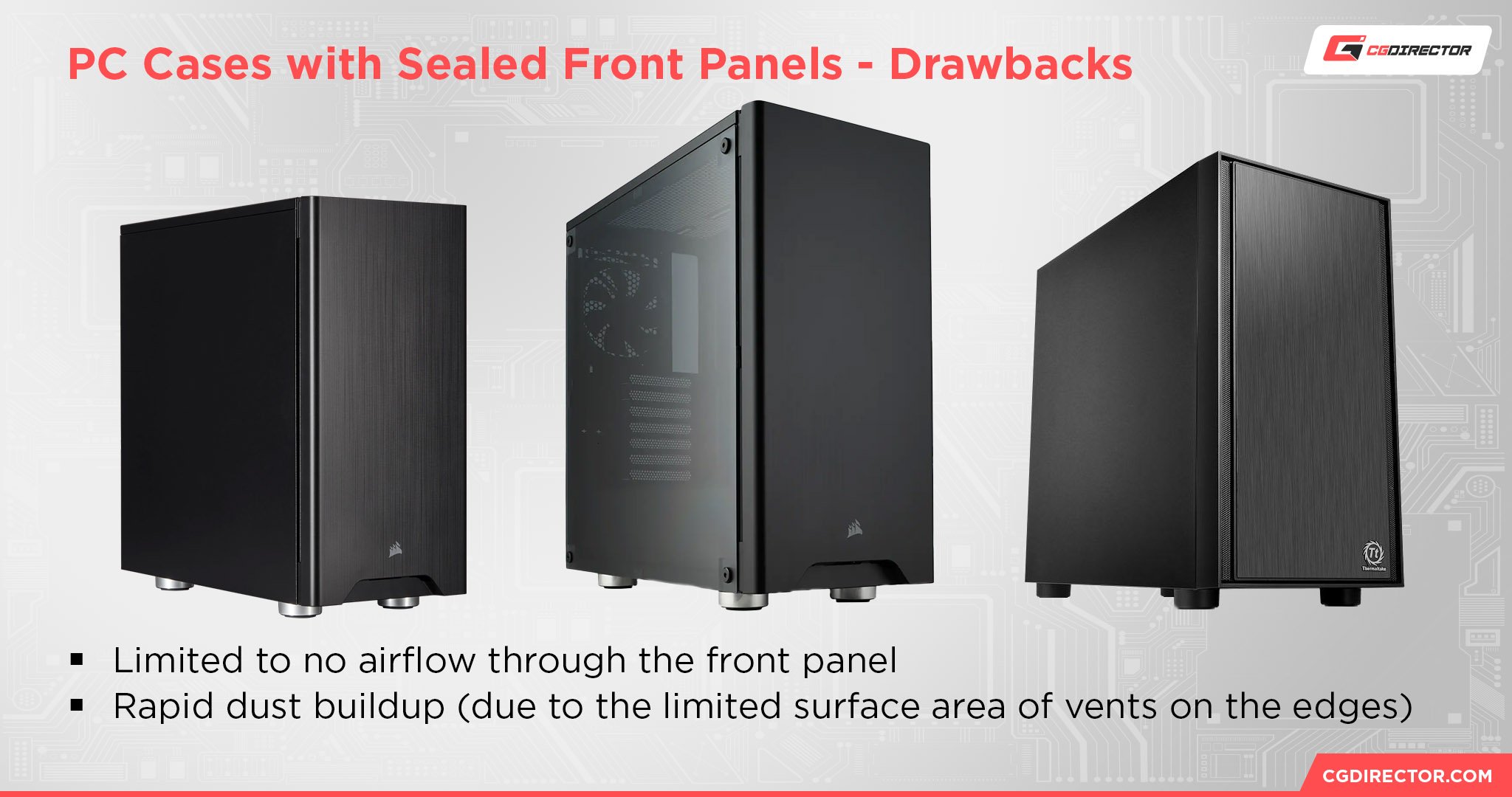
Some cases also use side ventilation for intake instead, and this can work particularly well if a lot of surface area is dedicated to it, i.e. with the Lian Li O11 Dynamic cases.
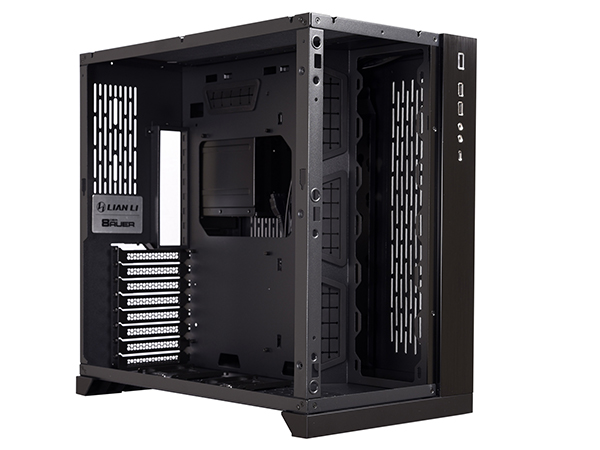
Image Credit: Lian Li
Generally-speaking, you’ll want to avoid cases with sealed front panels if you want good airflow unless they’re built with great side ventilation like the O11 Dynamic pictured above.

Durable Build Quality
Another thing you want in a good case is durable build quality. While some components are naturally going to be weak to dropping anyway (especially cases with side panel windows), outright dropping is generally a worst-case scenario for your PC anyway.
A case built with sturdy, high-quality materials should hold up better in transport and last longer, in general.
Tool-Less Design Features (Side Panel, Drive Bays, etc)
Besides explicit features and performance, it’s also nice when case manufacturers look out for the end user, whether they’re DIY builders or just a person wanting to make a quick upgrade to their PC.
Tool-less design features make building and troubleshooting a PC much more accessible, and are fortunately prominent in modern case designs.
Removable Dust Filters
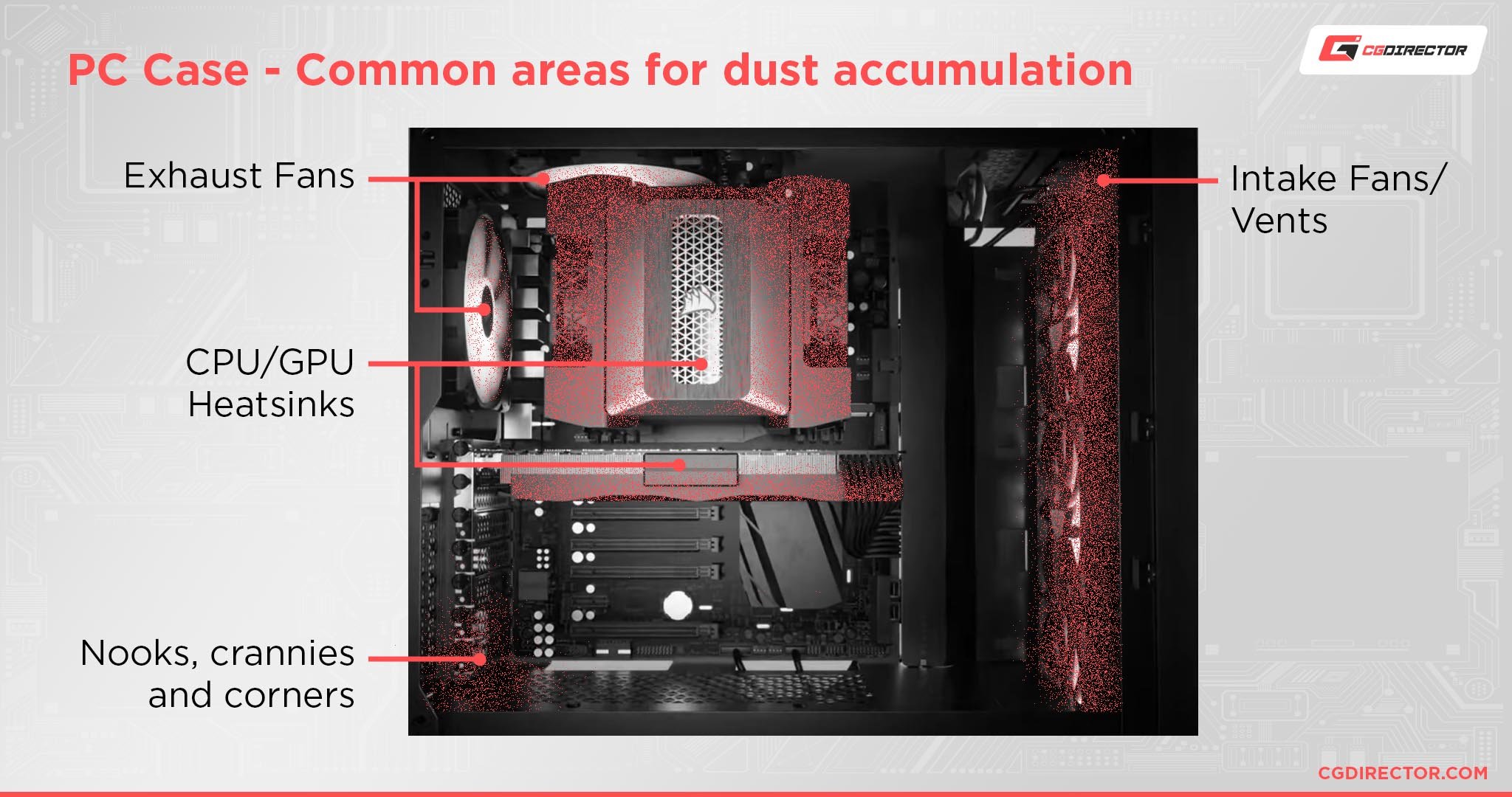
For long-term maintenance, it’s important to periodically dust your PC to maintain cooling performance.
Removable dust filters make this a lot easier, since they should catch most of the dust that would otherwise accumulate inside your PC, and allow you to remove the filter for cleaning instead of needing to work inside the chassis.
Cable Management Spacing
Cable management spacing is another great feature for improving builder-friendliness, and arguably one of the defining features of any modern chassis barring extreme SFF cases. This usually means a dedicated compartment behind your motherboard, with holes cut for routing your cables from your motherboard to your PSU.
Side Panel Window (or No Window)
Depending on whether or not you want to show off the components inside your PC, you may want to have a side panel window.
Users oriented toward more professional environments, or who just want to save money, may actively prefer a PC without a window. Non-window PCs tend to be a little quieter, too.
If you’d prefer a side panel window in your PC, keep in mind the following side panel window types:
- Acrylic — A plastic side panel window material. Even when the visibility is good (and it usually isn’t), acrylic is more prone to scratching and fogging up over time than an actual glass panel would be. However, it’s not likely to break due to being plastic, and it’s much cheaper overall.
- Tempered Glass — Tempered glass is the ideal pick for a side panel window. While it costs more than acrylic, it compensates by being much more scratch-resistant and transparent. Compared to standard glass, tempered glass is also about four times stronger, and breaks into smaller, safer pieces. You still don’t want to drop your PC, but tempered glass doesn’t suddenly make it super fragile, either.
Vertical GPU Mount (If Desired)
Vertical GPU mounts are very much optional, but a good feature of modern cases if you want to show off whatever flashy GPU you end up pairing with your PC.
After all, your GPU is more than likely to be one of, if not the most expensive component in the entire machine.
Vertical GPU mounts are more effective at showing off your GPU, and can even help it run slightly cooler if there is sufficient distance formed between your GPU fans and the inner wall of the chassis.
If your GPU mounted vertically doesn’t have sufficient breathing room, it will most likely throttle.
Support For Custom Loop Cooling (If Desired)
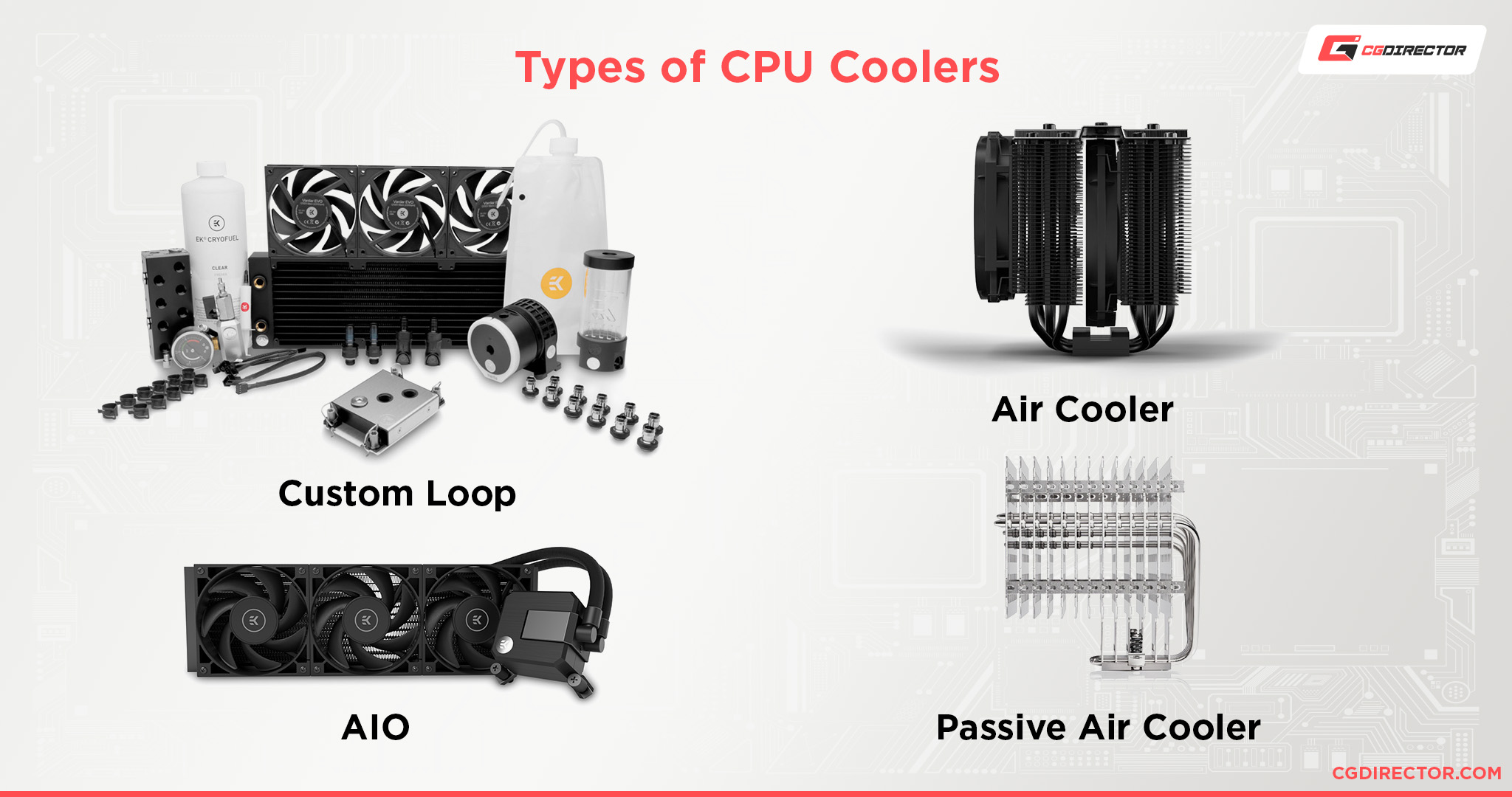
If you’re in the market for custom loop liquid cooling, one of the first things you’ll want to do is make sure your case can actually support a reservoir for your loop.
Without a place to mount your reservoir inside your PC’s case, you’ll be restricted to running a closed-loop AIO liquid cooling setup without a reservoir.
The Best PC Case Brands
Note: Image credit for images used below are sourced from the relevant brands unless stated otherwise.
1. Fractal Design
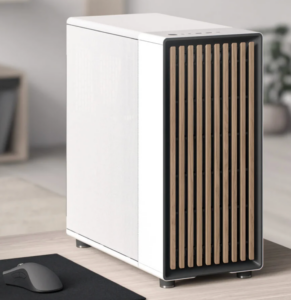
- Brand Strengths: Case Pricing, Case Design, Case Noise Levels, Case Airflow, SFF Cases,
- Established Since: 2007
Fractal Design has been a leader in PC cases since 2007, emerging from Sweden 15 years ago. Fractal Design cases span the full gamut from Mini ITX to Full ATX, and vary just as much in actual design language.
The RGB fan-plus-mesh equipped cases can veer a little flashy depending on the lighting set, but the long-running “Define” series (as well as others) instead use solid front paneling for a sleek, professional look.
Besides cases, Fractal Design also makes cooling fans, power supplies, and other PC hardware components. FD is regarded as good in most areas, but is actually most well-known for their PC cases’ strong cooling and sheer variety.
Some designs can be more costly than others, but Fractal Design has a pretty good split between high-end and budget-oriented cases.
2. Lian Li
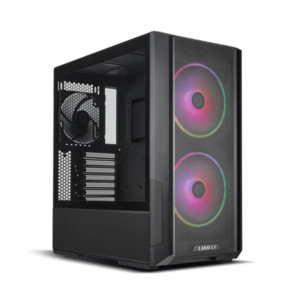
- Brand Strengths: Case Design, Case Lighting Features, Case Airflow
- Established Since: 1983
Lian Li is a long-time PC hardware manufacturer from Taiwan, specializing in PC cases.
Lian Li have long been recognized as a vendor for PC cases with high-performance cooling, commonly built from high-quality, sturdy materials like aluminum. Besides PC cases, Lian Li is also known for producing coolers, fans, and PSUs. They even sell a few desks!
Lian Li excels at providing a variety of premium cases with different form factors. Their cheaper options can be good,too, but may compromise on features you’re coming to Lian Li for to begin with, like aluminum construction.
Lian Li cases are primarily geared toward enthusiasts trying to show off their builds, but they also have some more refined non-window designs for professionals, too.
3. Phanteks
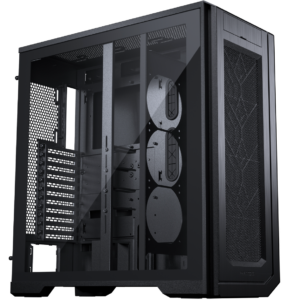
- Brand Strengths: Case Design, Case Airflow, Case Lighting Features, Dual System Cases, SFF Cases (Metallic Gear)
- Established Since: 2007
Phanteks is another well-established PC case manufacturer on this list, operating since 2007 and hailing from The Netherlands.
Phanteks are primarily known for their high-end PC cases, focusing on high expansion and cooling performance.
They also offer dual-system PC cases, which can be useful for those workloads where having a second PC can be handy.
Outside of PC cases, Phanteks also specializes in CPU cooling and case fans. As expected from one of the most well-known case manufacturers, these solutions are actually pretty decent, especially the case fans (often bundled with their cases).
Phanteks’ cases run a wide gamut of form factors, features, and prices. Most of them approach standard mid-tower designs with or without features like mesh or tempered glass.
Some diverge, though, like the SFF Evolv Shift cases. Also, the Phanteks-branded stuff trends mid-range and high-end in build quality and price.
Meanwhile, Phanteks’ sub-brand of Metallic Gear offers similar cases but with more experimentation in styling and Small Form Factor designs, like the NEO Qube.
4. Cooler Master
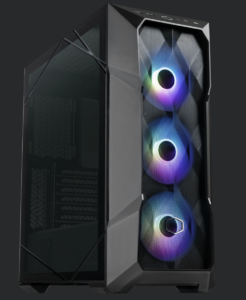
- Brand Strengths: Case Pricing, Case Lighting Features, Case Airflow, SFF Cases, Cube Cases
- Established Since: 1992
Cooler Master is a Taiwanese PC hardware manufacturer, most well known for their PC cases, coolers, and cooling fans.
They’ve been a major player in the business since they were founded in 1992, and most of their cases suit the Cooler Master moniker by having good airflow options (like mesh paneling) and strong fans included.
Some of their more unique experiments, like their Dual 200 mm Fan MasterCase H500 cases, have paid off by offering best-in-class airflow performance.
Besides strong airflow performance, most of Cooler Master’s lineup also focuses on features like front panel mesh, side panel windows and RGB fans.
Many of their cases use an Acrylic panel instead of tempered glass, but the price savings and airflow performance on these cases do still make those a worthwhile buy on a budget. Cooler Master also offers some SFF case designs, including a Mini ITX cube case.
The overall pricing of Cooler Master’s offerings tend to be strong, especially when shopping for mid-range and budget cases.
5. be Quiet!
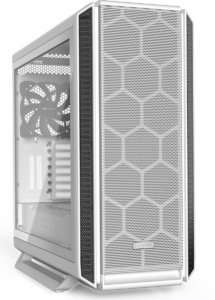
- Brand Strengths: Case Design, Case Noise Levels, Case Airflow,
- Established Since: 2002
be Quiet!, a German company established in 2002, has been a prominent name in PC fans, coolers, and cases for quite a while.
be Quiet!’s specialization in PC quietness doesn’t stop at quieter fans— they actually add soundproofing to their cases to stay true to their brand’s mission, too.
be Quiet! has something of an advantage here, since case noise levels are often neglected by other brands and their focus on low noise levels has also made them one of our featured CPU Cooler brands, alongside a few other ambitious manufacturers on this list.
The main drawbacks concerning be Quiet! cases is that there isn’t very much variety in their selections, and they trend higher-end in pricing and features alike.
If you’re looking for a sound-proofed PC build, though, be Quiet!’s cases, coolers, and fans are industry-leading for a reason: highly recommended for anybody who wants a quieter PC.
6. Corsair
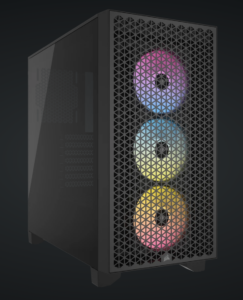
- Brand Strengths: Case Lighting Features, Case Airflow, Cube PCs
- Established Since: 1994
Corsair is a US-based PC hardware manufacturer, founded in 1994.
Corsair are most known for their high-performance RAM, RGB lighting hardware, and peripheral manufacturing outside of PC case manufacturing. That said, they also do prebuilt PCs, AIO coolers, power supplies, and even SSDs!
In terms of cases, most of Corsair’s offerings stick to traditional tower designs (and occasional cube or Mini Tower designs), with the inclusion of Corsair’s own RGB fans determining the price of case variations.
Their newer cases tend to have mesh intake for improved airflow performance as well, which is always a nice-to-have.
Since Corsair’s fans actually have pretty good static pressure performance, they’re an ideal choice for being bundled as intake fans, though they do raise the price.
Corsair isn’t exactly a “budget” brand, but if you’re invested in their hardware elsewhere their case prices can become a little more reasonable.
7. Thermaltake
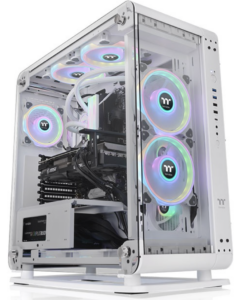
- Brand Strengths: Case Pricing, Case Airflow, Open Frame Cases, SFF Cases
- Established Since: 1999
Hailing from Taiwan, Thermaltake has been a PC hardware industry mainstay since 1999. Thermaltake is most well-known for their PC cases and cooling fans, but dabble in quite a few peripheral, AIO, and RAM markets…even desks!
This wider variety in hardware production is also seen in Thermaltake’s case designs.
Thermaltake’s cases range from traditional tempered glass towers to SFF cube and mini tower form factors, to extravagant open frame cases suited for EATX motherboards alongside custom loops.
Since Thermaltake offers such a wide variety of cases, there’s availability for a cheaper case option in all of their categories— even some of their Mini ITX cases are sold at an accessible sub-$60 price point.
8. Deepcool
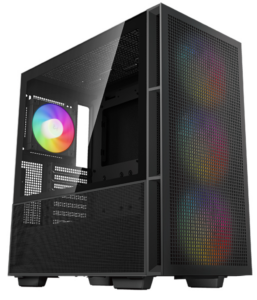
- Brand Strengths: Case Pricing, Case Airflow
- Established Since: 1996
Deepcool is a Chinese PC hardware manufacturing company most well-known for its PC cases and CPU coolers. They also make power supplies, and mice alongside other PC peripherals.
Deepcool has a generally good reputation as a case and cooler manufacturer.
Like other manufacturers, they’ve adopted mesh front paneling and tempered glass side panel windows as a matter of standard. Deepcool’s implementations are pretty good, and priced well to boot.
9. Silverstone Technology
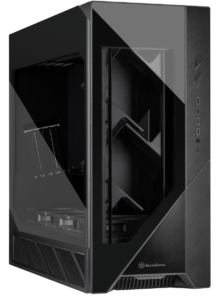
- Brand Strengths: Budget Cases, Case Airflow, SFF Cases, Case Design
- Established Since: 2003
SilverStone Technology is a Taiwanese PC hardware company founded in 2003, responsible for a wide variety of PC hardware. We’re covering cases in this article, but Silverstone also makes power supplies, server PCs, storage drives, CPU coolers, and cooler fans…among other things.
SilverStone cases come in a very wide variety from ATX to Mini ITX, and even Mini STX, which is yet smaller than Mini ITX.
The standard tower designs you would expect are still present from SilverStone and competitively-priced, but their widespread experimentation in SFF form factors can be worth looking into as well.
The variety of PC cases available from SilverStone include many cases without RGB lighting or side panel windows.
If you prefer a more professional PC presentation, some of the less gamer-y SilverStone designs should appeal to you, and usually for a competitive price. Even SilverStone’s higher-end cases are usually priced within tolerable ranges.
10. InWin
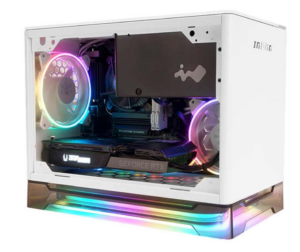
- Brand Strengths: Case Design, SFF Cases,
- Established Since: 1985
InWin is a Taiwanese PC hardware manufacturer with stakes in CPU cooling, server PC manufacturing, PSU manufacturing, and, of course, PC case manufacturing.
InWin has its fair share of standard-size PC cases, but I find them most worthy of highlighting due to their minimalist design SFF cases, particularly their numerous, unique Mini ITX PC designs.
The cable management on a SFF InWin case can be a little difficult without ties and custom cables, but the company makes some pretty compelling SFF cases if you can build within their constraints.
InWin case pricing varies from mid-range to high-end, depending on the features the case is targeting. Flashier features like RGB or special features like inductive charging will be limited to pricier, higher-end InWin cases.
I also recommend opting for InWin’s mesh front panel options whenever possible, since otherwise, the airflow in cases from this brand can be a little restricted.
11. BitFenix
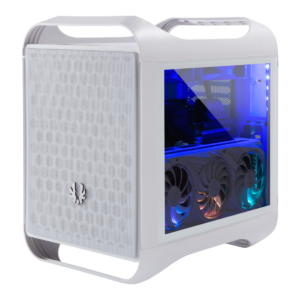
- Brand Strengths: Case Design, SFF Cases, Cube Cases
- Established Since: 2010
BitFenix is a Taiwanese PC hardware company specialized in PC cases and fans. BitFenix has been hanging around the industry since 2010, and in that time have been regarded as a generally good brand, though these days they aren’t really in the spotlight that often.
I’ve chosen to highlight them in this article for their unique SFF case form factors, though, including the nifty built-in handles on the Bitfenix Prodigy cases.
Besides some SFF cases and a cube case, most of BitFenix’s cases follow the current trends of modern tower designs with RGB fans, mesh intake, and a side panel window.
Those cases are fine, but I mostly recommend BitFenix if their more specific designs appeal to you.
Which PC Case Brand Is Best?
So, with all our picks covered…which PC case brand is best?
Honestly, I don’t think there’s a definitive answer here. That’s why this article exists, and I went into different niches being explored by these manufacturers and what kind of price ranges you can expect to see them at. In this context, “the best” should be suited to your needs, so here are my recommendations, more streamlined:
- Best PC Case Brands For Budget Users: (Low-to-mid range options from) Thermaltake, Deepcool, Cooler Master, Fractal Design, and SilverStone.
- Best PC Case Brands For High-End Users: (Mid-range to high-end options from) Lian Li, Thermaltake, be Quiet!, Phanteks, Corsair, Fractal Design, and Phanteks
- Best PC Case Brands For SFF Users: InWin, BitFenix, Fractal Design, and SilverStone.
FAQ
Should I Get ATX, Micro ATX, or Mini ITX?
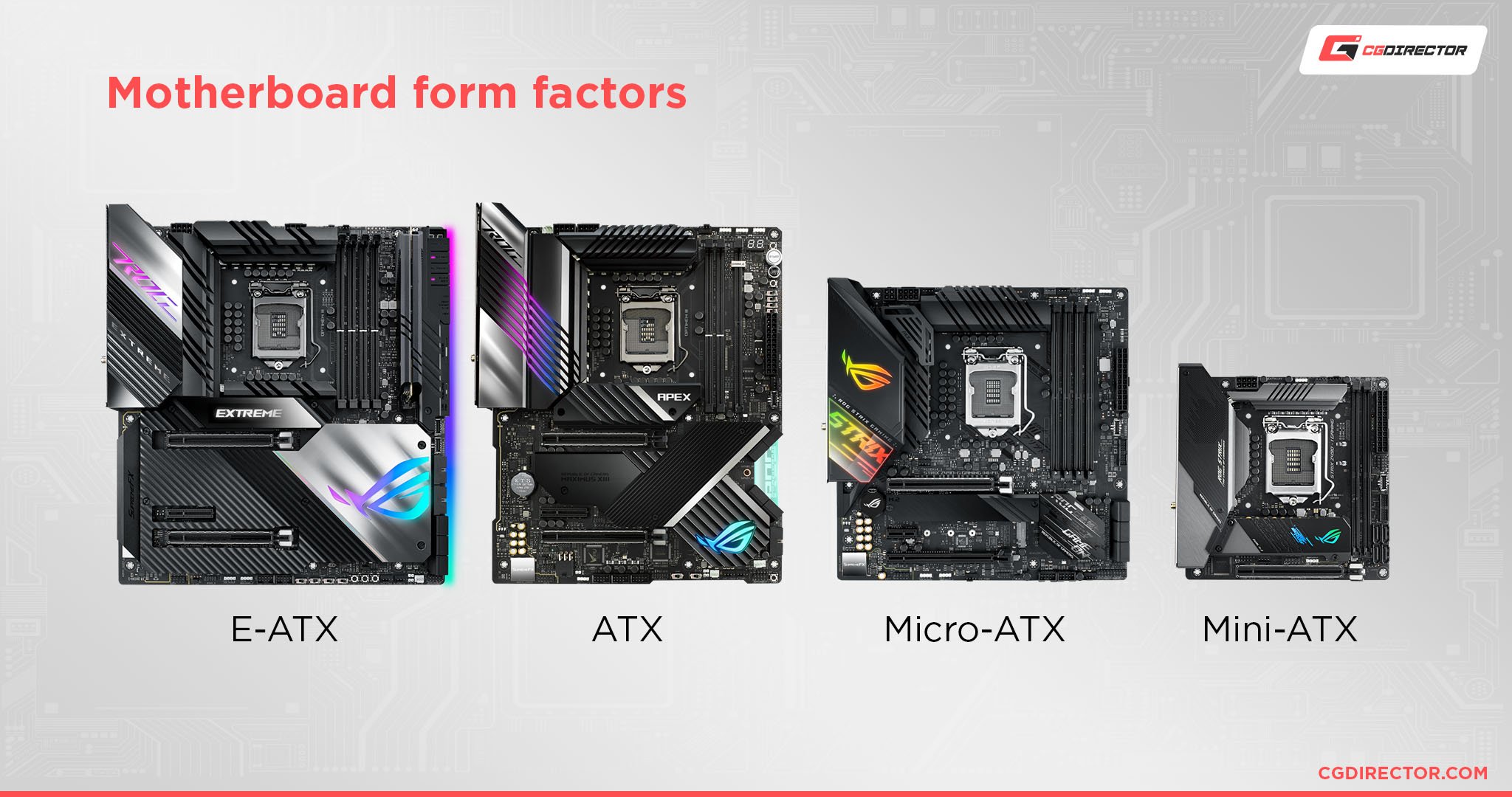
If you’re unsure whether to get a ATX, Micro ATX, or Mini ITX build, ask yourself the following questions:
- Are you going to use a dual GPU or any other kind of multiple expansion card setup? If not, you can safely disregard ATX and Extended ATX instead of spending more on expansion slots you aren’t using.
- Do you prefer a PC that’s easier to transport? Mini ITX is probably the best choice for you, though it’s also the most expensive. Micro ATX is smaller than ATX and thus easier to transport as well, but still has multiple expansion slots and comes in similar tower form factors.
- Do you want an easier building experience? If you want an easier building experience and to save a few bucks, opting for ATX and Micro ATX boards and cases is a good option. Even if you aren’t necessarily putting all the onboard features to use, the extra room to assemble and cool your PC with is very much a nice-to-have.
Are Extended ATX Cases Worth It?
If you have truly high-end needs, especially running several GPUs or drives, extended ATX hardware can be a worthwhile investment.
You’ll just need to be extra careful that your motherboard’s implementation of EATX is compatible with your case’s, since that isn’t always a guarantee with that particular standard.
Compatibility concerns aside, EATX motherboards can be worthwhile investments in specific builds. You may still be better served by a standard ATX motherboard if you aren’t chasing features like 8 RAM slots or dual CPU, though.
Do Cases Come With a Power Supply?
Some do, but you probably shouldn’t buy them, especially budget cases. If you aren’t buying from a highly-rated PSU manufacturer, you’re taking a very real risk with the rest of your PC.
That makes cases with bundled PSUs a bad choice most of the time, but some specialized SFF cases will include them by necessity. Even so, discrete SFF PSUs sold by the leading PSU brands may be a better option.
Over to You
And that’s all, for now!
I hope this article helped clarify the best PC case brands for you, and helped direct you toward the ones most suited toward your specific needs.
If you want help deciding between specific cases or have other questions about PC hardware, let me know in the comments section below!
Me or another member of the CGD Team will be happy to help you. You could also try our Forum for more in-depth exchanges with the Team and other Enthusiasts and Experts.
Until then or until next time, happy building! And remember, most cases are fine: just make sure it has functioning airflow.
![The Best PC Case Brands [2024 Update] The Best PC Case Brands [2024 Update]](https://www.cgdirector.com/wp-content/uploads/media/2024/02/The-Best-PC-Case-Brands-Twitter-1200x675.jpg)
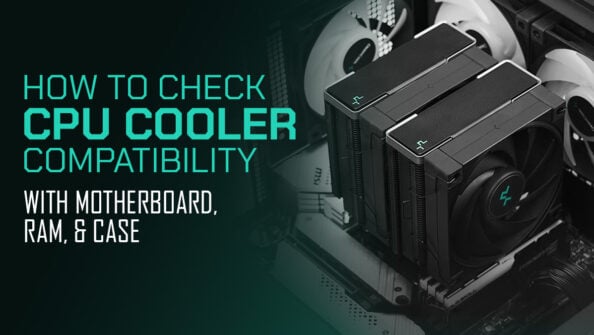
![Will My GPU Fit In My Case? [GPU Clearance Explained] Will My GPU Fit In My Case? [GPU Clearance Explained]](https://www.cgdirector.com/wp-content/uploads/media/2022/06/Will-My-GPU-Fit-In-My-Case-GPU-Clearance-Explained-Twitter-594x335.jpg)
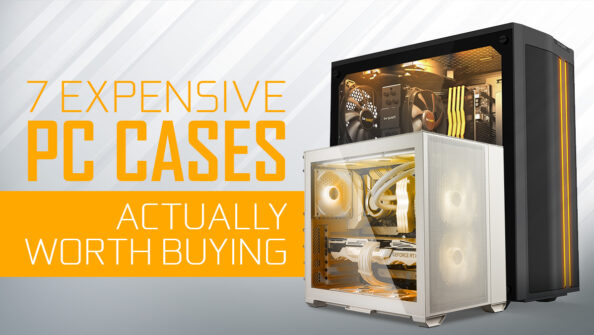
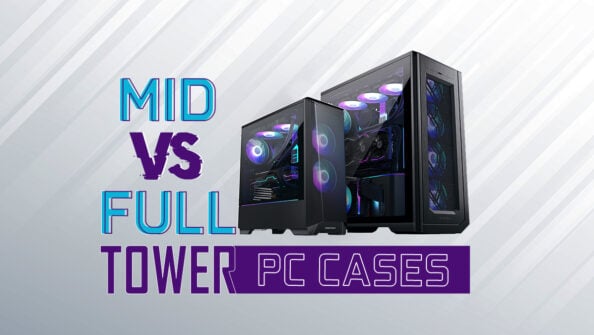

0 Comments